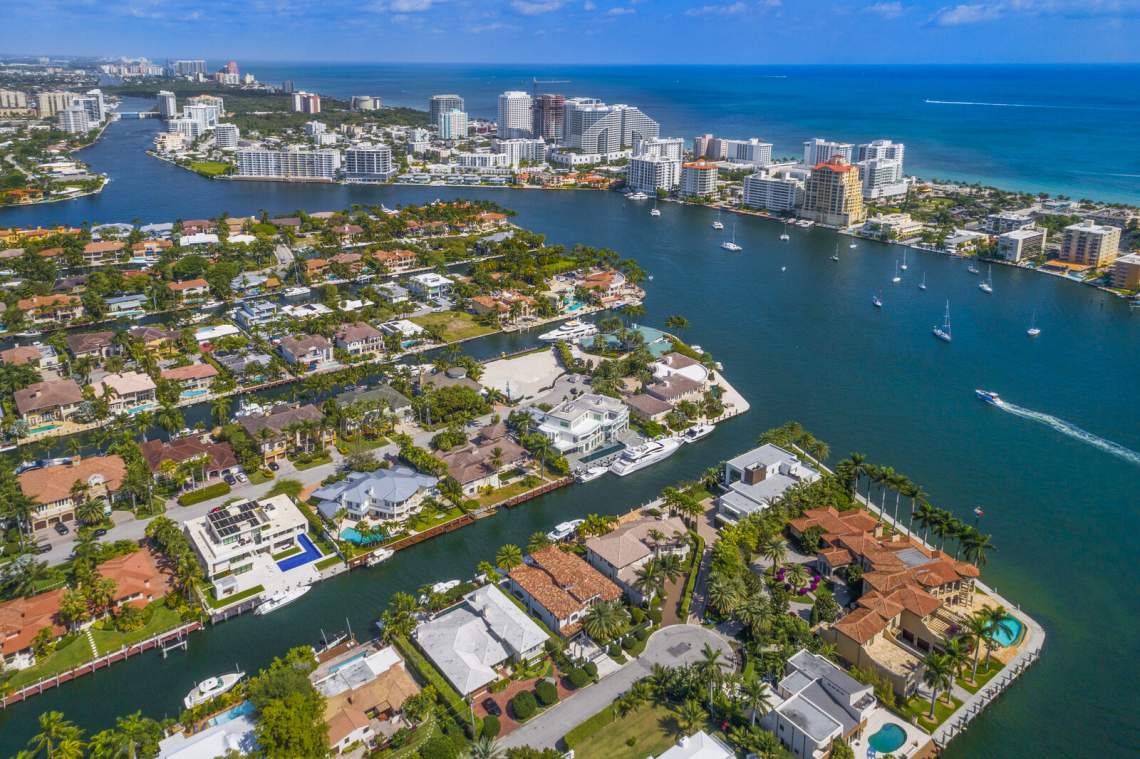Fort Lauderdale
Fort Lauderdale, often referred to as the “Venice of America” due to its extensive canal system, is a vibrant city located on the southeastern coast of Florida. It is the county seat of Broward County and is known for its beaches, boating canals, cultural attractions, and a lively downtown scene. Here’s an overview:
Geography and Location
- Location: Fort Lauderdale is situated about 25 miles north of Miami and is bordered by the Atlantic Ocean to the east. The city has over 165 miles of inland waterways, making it a major hub for boating and yachting.
- Climate: The city has a tropical rainforest climate, characterized by hot, humid summers and warm, dry winters. It’s a popular destination year-round, although it can be affected by hurricanes during the Atlantic hurricane season from June to November.
History
- Early Development: Fort Lauderdale’s development began in the early 20th century, particularly after the Florida East Coast Railway reached the area in 1896. The city was named after a series of forts built during the Second Seminole War.
- Tourism Boom: In the mid-20th century, Fort Lauderdale gained fame as a Spring Break destination for college students, though it has since transformed into a more upscale tourist and residential area.
Attractions and Activities
- Beaches: Fort Lauderdale Beach is one of the city’s most popular destinations, known for its white sands, clear waters, and a beachfront promenade lined with shops, restaurants, and hotels.
- Las Olas Boulevard: This is the city’s main strip for dining, shopping, and nightlife. The boulevard stretches from downtown Fort Lauderdale to the beach and is home to art galleries, boutiques, and cafes.
- Riverwalk Arts & Entertainment District: Located along the New River, this district includes cultural attractions like the Broward Center for the Performing Arts, the Museum of Discovery and Science, and the NSU Art Museum Fort Lauderdale.
- Historic Sites: The Stranahan House, the oldest surviving structure in Broward County, offers a glimpse into the city’s early history. Bonnet House Museum & Gardens is another historic site, set on 35 acres of beachfront property.
- Boating and Yachting: Fort Lauderdale is a world-renowned yachting destination, with its extensive canal system, marinas, and annual events like the Fort Lauderdale International Boat Show, one of the largest boat shows in the world.
- Port Everglades: One of the busiest cruise ports in the world, Port Everglades is a gateway for cruise vacations and also a major cargo shipping hub.
Lifestyle and Economy
- Real Estate: Fort Lauderdale’s real estate market is diverse, ranging from luxurious oceanfront condos and estates to more affordable suburban homes. The city’s waterways make it particularly attractive for waterfront living.
- Economy: The local economy is driven by tourism, maritime industries, and real estate. The city is also seeing growth in technology and finance sectors.
- Dining and Nightlife: The city offers a dynamic culinary scene, with a mix of casual beachfront eateries, upscale restaurants, and vibrant nightlife. Areas like Las Olas Boulevard and Himmarshee Street are hotspots for dining and entertainment.
- Events: Besides the boat show, Fort Lauderdale hosts a variety of events throughout the year, including the Tortuga Music Festival (a country music festival on the beach) and the Las Olas Art Fair.
Transportation
- Airports: Fort Lauderdale-Hollywood International Airport (FLL) is a major hub for domestic and international flights. It’s conveniently located near the city center.
- Public Transit: The city has a growing public transit system, including buses and the Sun Trolley. The Brightline high-speed rail connects Fort Lauderdale to Miami and West Palm Beach, making regional travel easier.
Education
- Higher Education: The city is home to several colleges and universities, including Nova Southeastern University, Broward College, and Florida Atlantic University’s Fort Lauderdale campus.
- Public and Private Schools: Fort Lauderdale offers a range of public and private schools, with some highly regarded institutions serving the community.
Environment and Parks
- Parks and Nature: Hugh Taylor Birch State Park is an urban oasis offering hiking, kayaking, and wildlife viewing opportunities. The nearby Everglades provide a unique ecosystem to explore through airboat tours and wildlife excursions.
Fort Lauderdale has evolved from its Spring Break party image to become a sophisticated and diverse city, known for its luxury lifestyle, boating culture, and vibrant arts scene. It’s a popular destination for both tourists and those looking to enjoy a high quality of life in South Florida.

